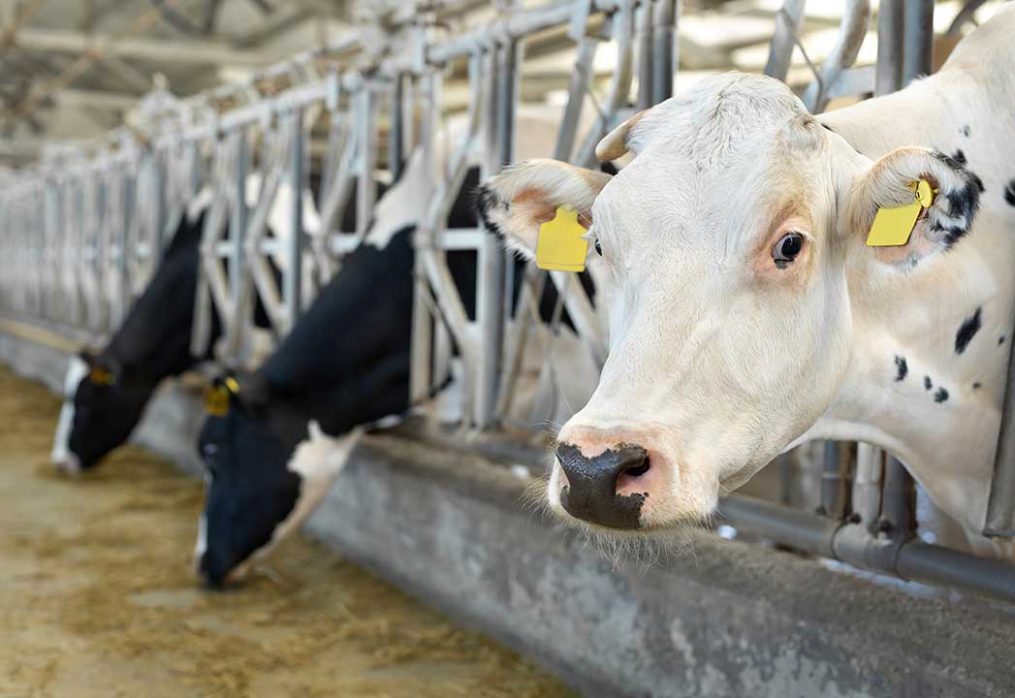A Guide to Feed and Nutrition for Dairy Cows: Maximizing Milk Production with Proper Nutrition
Dairy cows require a balanced diet that meets their nutritional needs to produce high-quality milk. Proper feed and nutrition are essential to maximizing milk production and keeping your cows healthy. In this article, we will discuss a guide to feed and nutrition for dairy cows, including the key components of a balanced diet and how to meet the nutritional needs of your cows.
- Understanding the Nutritional Needs of Dairy Cows
Dairy cows require a balanced diet that provides energy, protein, fiber, vitamins, and minerals. These nutrients are essential for milk production, growth, and reproduction. The nutritional needs of dairy cows vary depending on their age, weight, and stage of lactation. - Components of a Balanced Diet for Dairy Cows
The following are the key components of a balanced diet for dairy cows:
a. Forages
Forages are an essential part of a dairy cow’s diet. They provide fiber, energy, and essential nutrients. Examples of forages include hay, silage, and pasture. The quality of forages varies depending on factors such as maturity, species, and soil fertility.
b. Concentrates
Concentrates are feed ingredients that provide energy, protein, vitamins, and minerals. Examples of concentrates include corn, soybean meal, and wheat. The amount and type of concentrate in the diet depend on the cow’s nutritional needs and milk production level.
c. Minerals and Vitamins
Minerals and vitamins are essential for cow health and milk production. Dairy cows require minerals such as calcium, phosphorus, magnesium, and potassium. They also need vitamins such as vitamin A, vitamin D, and vitamin E.
- Meeting the Nutritional Needs of Dairy Cows
To meet the nutritional needs of dairy cows, you need to:
a. Analyze your feed and forage
Analyzing your feed and forage can help you determine the nutrient content and ensure that they meet the cows’ nutritional needs.
b. Balance the diet
The diet should be balanced to meet the cows’ nutritional needs. You can use a ration formulation program to balance the diet based on the cow’s nutritional needs and milk production level.
c. Provide clean water
Dairy cows require clean and fresh water at all times. Make sure that water sources are clean, and the cows can access them easily.
d. Monitor the cows’ body condition score
The body condition score (BCS) is a measure of the cow’s fat reserves. Cows should have a BCS of 3.0 to 3.5 to ensure proper reproductive performance and milk production. Monitor the cows’ BCS regularly and adjust the diet as necessary.
- Tips for Maximizing Milk Production
Maximizing milk production requires proper feed and nutrition. Here are some tips to help you achieve this:
a. Ensure that the cows have access to clean and fresh water at all times.
b. Provide high-quality forages and concentrates that meet the cows’ nutritional needs.
c. Feed cows based on their stage of lactation and milk production level.
d. Provide adequate feed bunk space and avoid overcrowding.
e. Monitor the cows’ body condition score regularly and adjust the diet as necessary.
f. Work with a nutritionist to ensure that the cows’ diet is properly balanced.
Proper feed and nutrition are essential to maximizing milk production and keeping your cows healthy. By understanding the nutritional needs of your cows and providing them with a balanced diet, you can ensure that they produce high-quality milk and remain healthy. Work with a nutritionist to develop a diet that meets your cows’ nutritional needs and helps you achieve your milk production goals.
